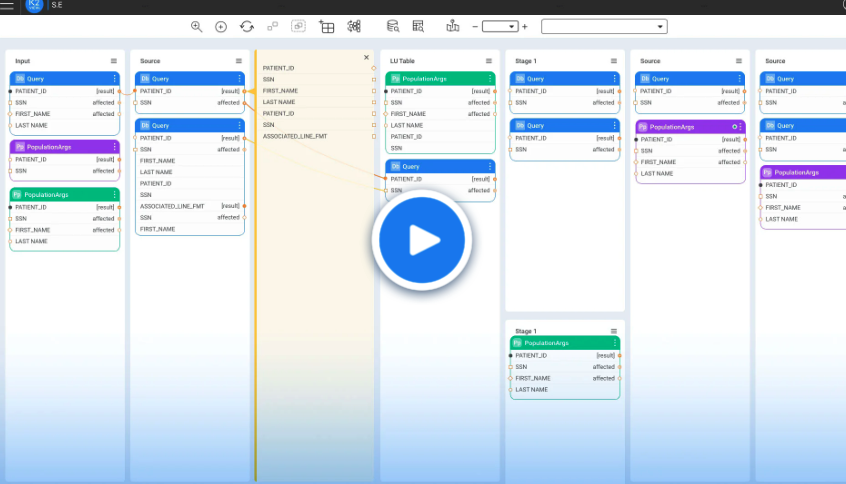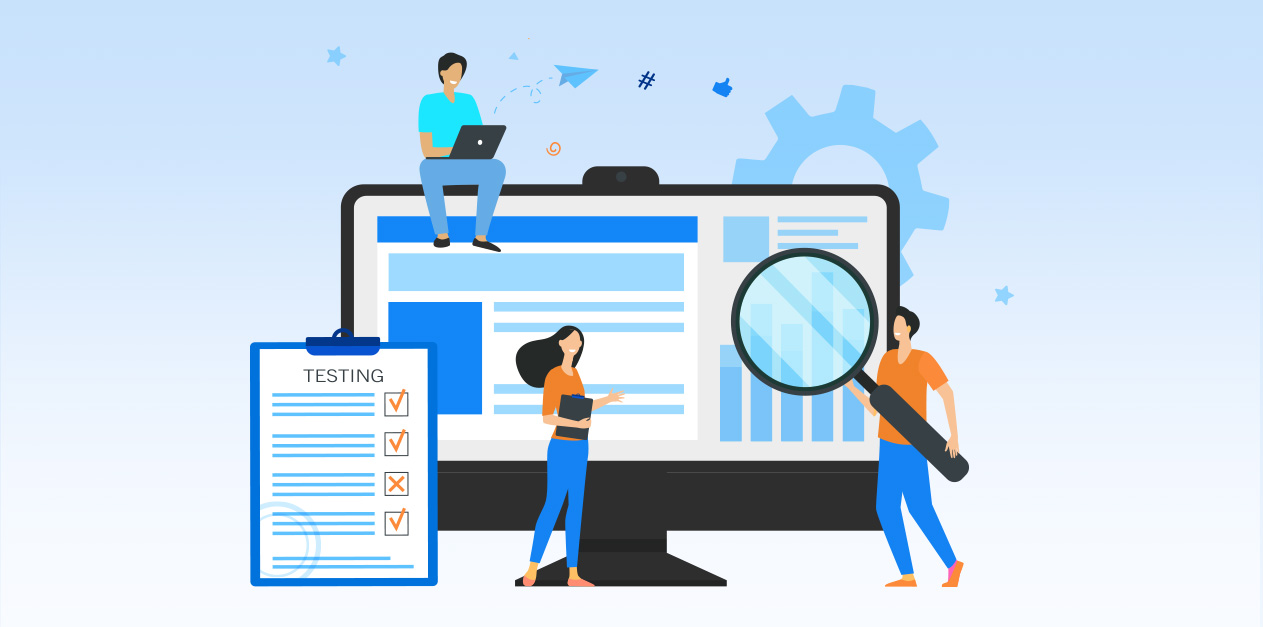Before an app can be released, it needs to be tested across its development cycle using realistic test data. Learn why a business entity approach is best.
Table of Contents
Intro to Test Data Management Benefits
Top Test Data Management Benefits
Test Data Management Benefits from the Right Tools
Test Data Management Based on Business Entities
Intro to Test Data Management Benefits
Modern test data management provisions realistic test datasets into any test environment. Since the datasets are generated from production systems, they provide high-quality data to testing teams.
The right test data management tools should act as (1) a test data warehouse for all your test data, and (2) an ETL layer for extracting data from production sources, and then loading it into target environment.
One of the main challenges of provisioning test data is that the data is often fragmented across many different data sources. For example, a customer’s data may be stored in CRM, billing, ordering, ticketing, customer feedback, and collection systems. The importance of test data management is proven by being able to run functional tests on customers in an agile development test environment. To do this, customer data must be extracted from all relevant source systems (e.g., a customer 360 platform) while maintaining complete referential integrity.
An entity-based test data management approach ensures smooth data provisioning, based on the company’s business needs, and eliminates the need to extract a complete copy of each data source.
Top Test Data Management Benefits
Here are 7 of the the most common test data management benefits:
-
Enhanced test data coverage
By tracking test data to test cases, and then to requirements, test data management software can deliver a customer 360 view of test data coverage, as well as associated error patterns. -
Reduced cost due to error tracking
As explained above, the combination of superior test data coverage and tracking results in exceptional clarity. This broad picture detects faults earlier, this reducing the cost of production fixes. -
Data provisioning by testing type
An entity-based test data generation solution stores data in a test data warehouse. From there, the right data can be provisioned for different testing types (e.g., functional, integration, performance, etc.) thus reducing redundant data copies and storage costs. -
Data compliance and security
The growing body of data privacy regulations needs to be upheld by every enterprise, everywhere. That makes data masking, data tokenization, and synthetic data generation core pieces of your test data management strategy, where data compliance and security are top priority. -
Reusability of test data
Reusability is perhaps the most important feature of test data management, because it reduces costs even further. Reusable test data is categorized and archived in the test data warehouse for future use by testers, whenever the need arises. -
No data copies necessary
For any given project, different teams often make identical copies of the production data for their own use – resulting in redundancy and wasted storage space. When a test data warehouse is accessible by all teams, referential data integrity and optimized storage are maintained. -
Customer trust
Key advantages of test data management are the high quality and broad coverage of the data, meaning that errors are dealt with early on in the testing phase by adopting a shift-left testing approach. The result is a stable and high-quality application, with minimal defects.
Test Data Management Tools
Comprehensive test data management tools should include:
-
A self-service web application, where testers can request data to be provisioned on demand
-
A test data warehouse, of provisioned test data
-
Live transfer, or the ability to transfer data into live testing environments
-
Test data subset requests, including selection criteria from the source systems, re-deployment of test data sets, and test data appending into the test environment
-
Synthetic data generation tools, by cloning a given production entity into the target environment, while avoiding sequence duplication and ensuring referential integrity in the test environment
-
Inflight data security, applied via data masking tools, as the data is retrieved from the source systems
-
A “time travel” mechanism, in which testers can:
– Save specific versions of a test data subset
– Load a selected version of test data to a specific target environment
– Provision data on-demand, or automatically, according to schedule (e.g., once a week)
Test Data Management Based on Business Entities
The entity-based test data management approach offers many advantages. A business entity can be a customer, order, product, or any other business object that’s essential to the tested application. All the data related to a specific business entity (e.g., an individual customer) is stored in its own encrypted Micro-Database™.
Test data is collected from all source systems, unified and managed (in a Micro-Database), and provisioned to the target test systems. This simplifies the process, assuring efficiency and referential integrity.
By taking a business entity approach to test data management, all Micro-Databases are ingested into a centralized test data warehouse, enabling testing teams to subset data by applying selection criteria, and then provisioning it accordingly. The test data warehouse supports data versioning to enable test data rollbacks, as well as the segregation of test data by testers.
With entity-based test data management, you can:
-
Connect many sources and targets
-
Provision from any source, to any target, in any version
-
Build subsets of data on demand
-
Create test data for new applications
-
Discover and mask structured and unstructured data consistently
-
Prepare test data for CI/CD, with enterprise-grade data pipeline tools
-
Secure access via role-based access control








-1.png)




